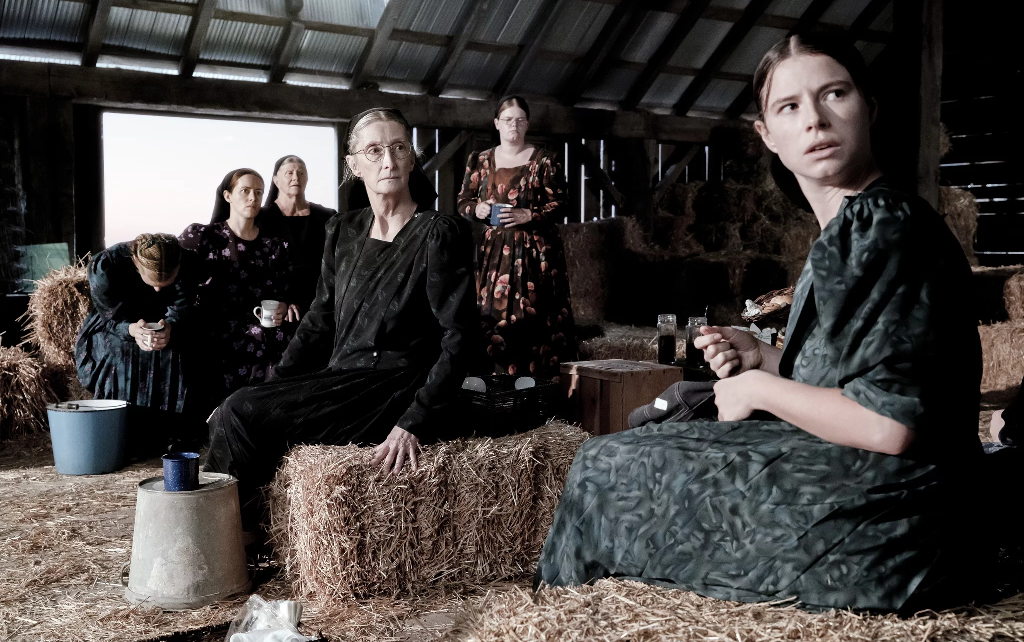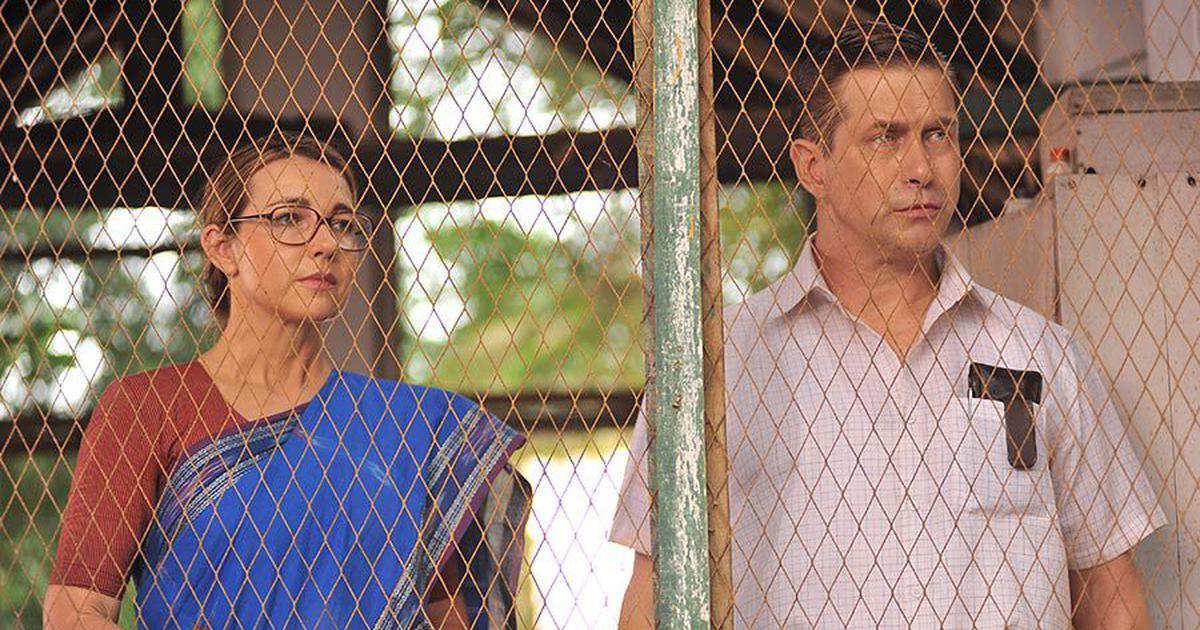This is a film about rape. Systemic societal rape. Sanctioned systemic societal rape – like the whole colony consists of either Bill Cosby or Bill Cosby enablers. Nothing about this is pretty. Nothing about this is nice. I will endeavor to give this material the tone it deserves instead of my usual one.
However, for fans of my writing, you might just want to skip this one.
The Manitoba Colony is a Mennonite community in rural Bolivia. For those unfamiliar with Mennonites, this is a community so religiously conservative they make Mormons look like BLM. These are folks who drive horse and buggy, shun electricity, and at times communicate entirely in Bible verse. This isn’t a big community; it consists of only a few hundred people. Between 2005 and 2009, dozens of female community members – some as young as three and four – woke up to realize they’d been raped.
Several women became pregnant as a result.
So, um, what happened? Well, it turns out a group of men in the colony sprayed animal anesthetic in the victim’s houses to render them unconscious. On the scale of evil things people do to one another, this is about as low as it gets. The fact that it’s completely misogynistic shouldn’t be lost on anyone, either, especially Americans who watched the Supreme Court overturn Roe v. Wade in 2022 with neither a change in public knowledge nor public sentiment on the subject of abortion. The bottom line to all of this is a conservative cadre of men who need to control women. And this is happening in our time and not far removed from our place. It’s hard to remove oneself by pretending this is history.
The women reported; the police arrived; they took suspects in. Bail is set. Release is granted in 48 hours. The clock is ticking. Eight women gather together in a hayloft. They have three choices: 1) do nothing 2) stay and fight 3) leave. Most of this film is about this discussion, led by Salome (Claire Foy), the mother of a three-year-old rape victim and Mariche (Jessie Buckley), the wife of the colony’s most violent abuser. Nobody likes that it has come to this.
While the film is set in South America, it is filmed in English, American English. I have no doubt that writer/director Sarah Polley made a conscious choice here so as to parallel the mounting discussion over personal and reproductive rights in our own back yard. The discussion is humorless and somber; why would it be anything else? One of the huge problems in this society is that the misogynistic roots hardly curtail at the subject of sex. The women of the Manitoba Colony are deliberately uneducated. Few, if any, can read or write. The hayloft discussion has to include an ally, August (Ben Wishaw), just so minutes can be taken.
So Women Talking is an important film. Not a bad film. Not a good film. An important film. It presents itself as a film you should watch rather than one you should enjoy. I’m certain some will watch it for the sake of enjoyment, but I’m guessing this film will find its way to classrooms in the high schools of blue states to find the vast majority of its future audience. From an entertainment perspective, this feels like the producers took a cutting floor scene from The Ten Commandments where Moses discusses with the enslaved Israelites “should we get outta here?” and turned it into a two-hour movie. It’s an  important discussion, but it’s hardly entertainment. Clearly, movies don’t have to be about entertainment – and here’s your proof.
important discussion, but it’s hardly entertainment. Clearly, movies don’t have to be about entertainment – and here’s your proof.
This next part is perhaps unfair on the score of: “what else do these women know? They’ve been deliberately kept in the dark,” but I’m going to state it anyway full well knowing I may receive significant blowback: One thing that truly irked me about the discussion was a conclusive speech insisting that leaving would: “make them better Mennonites.” That’s bullshit … and now you’re doing exactly what Trumpers do – you’re selecting your reaction emotionally and then justifying your behavior retroactively. This is as disingenuous as it gets. If you want to go, go. If you want to stay, stay … but don’t pretend this is about being a better Mennonite. Similarly, Trump voters: I see you. I see all your terrible excuses. I see all your awful justifications. It is clear to me you just want to be a bully; you like being a bully and you like having the people you voted for tell you “it’s ok to be a bully.” Justify it all you want but that’s the truth, and I loathe you because I loathe bullies. I don’t loathe people who love God, but I do loathe it when they use such to excuse their behavior.
And let me state for the record: I am fully on board with both the reactions of “”fight back” or “leave.” I’m just not on board with consulting scripture to justify your actions. Systemic rape is justification enough. Period.
Hence, I can’t say I loved the action in this film (what action?) and I cannot say I loved all the speechifyin’ … but I do believe this film is one that ought to be watched by all high schoolers during sex ed week as a reminder of what consent isn’t and how people who didn’t consent feel about it.
Conservative sins
Are just slightly worse than the
Justification
Rated PG-13, 104 Minutes
Director: Sarah Polley
Writer: Sarah Polley, Miriam Toews
Genre: Is your society really that different?
Type of being most likely to enjoy this film: Victims of rape
Type of being least likely to enjoy this film: Bullies



